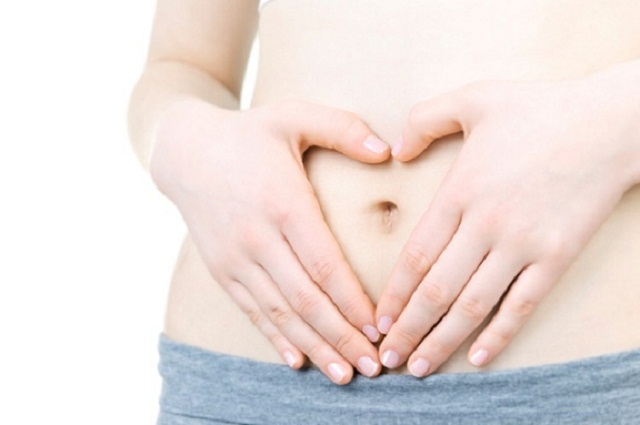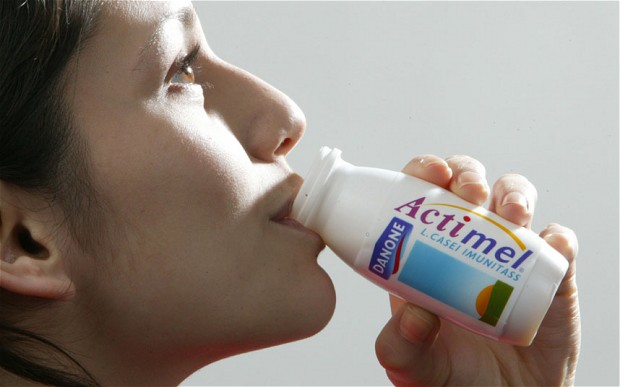Feeling Gassy? Blame Probiotics
Can Probiotics Cause Gas?
Gas is something that probiotics can help with however when new to probiotics you may go through a short period of feeling gassy. Probiotics are the good bacteria which help in maintaining digestive health. Probiotic fortified foods and supplements deliver live bacteria directly to your gut to boost immunity and maintain the right balance in your microbiome.
Not all foods contain probiotics. Don’t expect to receive the benefits of probiotics by downing soda every day and a large bag of potato chips. This type of diet will not improve your gut health, it will in fact do the opposite.
Like all good things, probiotics are not without side effects – gas being the primary one. Here is how probiotics affect your digestive system, including some of their potential side effects and ways to counteract them.
About Probiotics
It might seem an unpalatable idea to ingest live bacteria on purpose. The traditional wisdom is that bacteria ridden foods can make you sick and are to be avoided at all costs.
However, did you know that your gut is hospitable to over a trillion microorganisms? A healthy person carries the right balance between bad bacteria and good bacteria.
Nowadays, a regular trip to the supermarket will give you numerous ready-to-eat food options that contain these friendly organisms to help with your bodily functions and digestion. However, probiotics in some form or the other has been consumed by humans for centuries.
There are a number of advantages of these good bacteria ranging from reduced blood pressure to preventing colorectal cancer.
However, the effects of probiotics in the human digestive system are more deep rooted. They essentially help in breakdown of complex nutrients and ensure optimal absorption.
Gas and Other Side Effects
Probiotics are generally considered safe for everyone especially when taken as directed. However, intestinal gas ranks among the most common side effects of probiotics. An average human passes gas a minimum of 9 times in a day.
It can be more if you tend to eat a healthy balanced meal with lots of fiber and a dose of probiotics. Gas is produced during the digestion process and when you swallow air.
Here are some of the reasons why gas may be produced in your digestive system after taking probiotics.
Normal Digestive Process
Complex carbohydrates and other hard to digest food sit longer in the small intestine. Good bacteria in your body toil away to break down the food molecules into nutrition that your body can assimilate and absorb.
This process causes gas to build up. Hence, it is not necessarily a side effect. It is more a case of your body acting normally.
Microbiome Change
Everyone has a gut flora that is individual and unique to them like fingerprints. There are both good and bad bacteria present in your body. The ideal balance that keeps your body running optimally is unique to you.
With even a small change in the balance, your body needs to cope up leading to digestive issues. Gas is the most common effect of any digestive issue. It accompanies everything from bloating to irritable bowels and diarrhea.
Bad Bacteria
When you add more good bacteria to your system in the form of probiotics, they start forming massively huge colonies. The numbers range in the billions.
Over time the gut environment becomes unsuitable for the bad bacteria. However, these bad bacteria do not die silently. Toxins are released when huge quantities of bad bacteria die. This is another reason for experiencing gas and bloating when you start with probiotics.
Source
Probiotics can only be ingested through food and supplements. Side effects depend upon your individual allergies and tolerance. For instance, there are many people who are lactose intolerant. If they ingest probiotics in the form of yogurt, then they will sooner experience indigestion issues than probiotic side effects.
Likewise, supplements have particular strains of probiotics. There is no single cocktail pill with a magic formula to prevent side effects.
Dosage in supplements is identified by the number of colony forming units or CFUs present in a pill. There are no FDA regulations regarding dosage and daily requirements as well. You need to discuss your supplement options with your doctor.
How to Counteract the Side Effects?
Probiotic side effects are temporary and should not last more than a few weeks. You need to stop what you are eating and change the dietary source of probiotics if symptoms persist beyond a few weeks. These tips can help prevent the potential side effects.
Choose Wisely
Probiotics are available in the market in two forms – live cultures and dormant form. Live cultures are the ones in raw cheese, yogurt, sauerkraut, kimchi, kefir, and other dietary sources.
Dormant forms are the capsules or supplements. You need to decide wisely on the source you choose.
Natural foods have dietary fibers and live cultures which make digestion easy. However, they come with their own issues such as high fat and sodium content. These can cause more digestive problems that the probiotics themselves.
On the other hand, with supplements you know exactly what you are putting in your body. You can pick and choose among the different brands to find the ideal probiotic cocktail. For instance, you can stay clear of bacterial strains you can be allergic to.
Look For the Expiration Date
Probiotics are essentially good bacteria and need to be living. They might not have a long shelf life. Always check for the expiration date in store bought food. The same holds true with supplements. A common problem with probiotics is that when taken in small amounts, they do more harm than good.
This is primarily because they are not enough to kill off the bad bacteria and regulate a healthy environment in your gut. Supplements might not have as many CFUs left when you consume them as they had when the manufacturing label was printed.
Check for the Particular Strains
Your doctor might recommend certain bacteria strains based on your digestive issues and overall health. However, it might become difficult to find the individual strains as most manufacturers only list the species on the bottle.
Do not hesitate to call the manufacturer and ask for recommendations. It is ok to play detective for the sake of your health. You might suffer side effects if you take strains that are not recommended for you.
Common Reactions
Gas is a common side effect during any digestive change. Do not jump to conclusions when you experience bloating and gas after taking probiotics.
The problem might not be the probiotics but the source. Remember that probiotics are living bacteria which are gut-friendly. They are slow-acting and will not usually cause immediate side effects such as gas.




